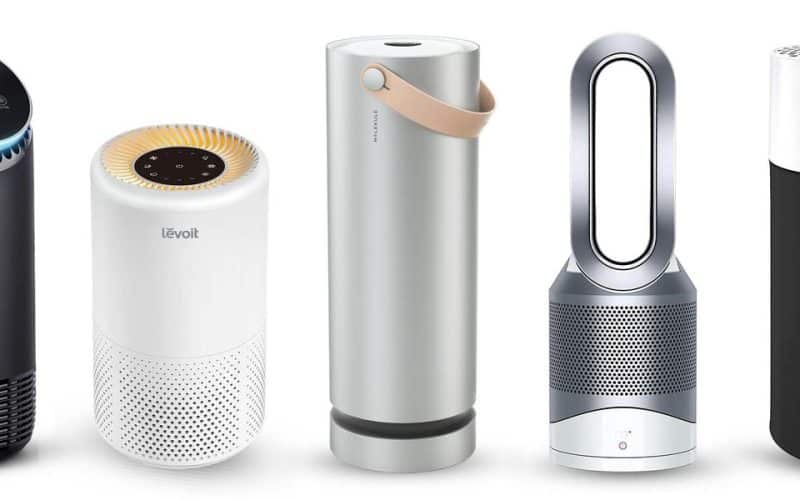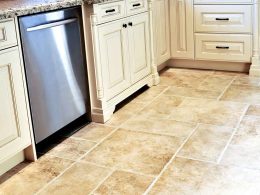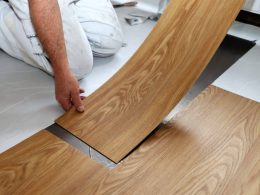The market demand for home air purifiers has increased significantly, partly due to health concerns over air purity.
While our homes are designed to provide us shelter, many of us now spend more time indoors than previous generations.
So you may be more exposed to indoor pollutants and particles that can cause or aggravate lung-related health conditions.
Despite their claims, are air purifiers a reliable solution to eliminate indoor pollutants? The simple answer is yes, but to an extent.
Continue reading to find out more about these devices, how they work, and if they’re worth spending your money on.
What is an air purifier?
An air purifier, or sometimes called air cleaner, is a device that improves indoor air quality by eliminating pollutants in the air in the room.
These devices are generally marketed as being beneficial to people who can’t stand stuffed air and also reduce second-hand tobacco smoke.
The commercially graded devices are manufactured either as a small stand-alone unit or a larger unit that can be used together with an air handler unit or an HVAC unit found in industrial, commercial, and medical sectors.
How do air purifiers work?
These devices work by sanitizing the air, which includes allergens, contaminants, and toxins. They’re the complete opposite of humidifiers and essential oil diffusers, which add particles to indoor air.
Air purifiers also work differently than filters. While filters only eliminate particles, purifiers can sanitize them as well.
The type of air purifier you choose greatly determines the kind of particles that will be removed. Some versions are fitted with filters to help trap particles as they run through them, while other versions may neutralize particles in the air without first filtering them.
A negative ion emitting air purifier is another option that helps to draw positive ion particles from the air so that they can be neutralized. The negative aspect of this option, however, is the likelihood of ozone emissions.
Are air purifiers effective?
The simple answer is yes – however, it’s is highly unlikely that the air purifier will neutralize or remove all aggravating particles in your home.
This is because many particles can sit on soft surfaces such as bedding, carpeting, and furniture, as well as hard surfaces such as walls.
An air purifier is best used as a complement to a filter and other strategies to help eliminate the following particles.
Mold
People with asthma and other lung conditions can suffer complications from indoor mold particles. Air purifiers may work to an extent, but filtration is far more efficient in removing mold in the air.
An air purifier made with a high-efficiency particle air (HEPA) filter will work best, along with lowering humidity levels in your home.
Allergens
Allergens are particles that can trigger adverse immune responses in the form of asthma or allergies. Pet dander, dust mites, and pollen are some of the most common airborne allergens.
Using an air purifier along with a HEPA filter will be highly effective in trapping airborne allergens.
Smoke
Air purifiers with in-built filters may also eliminate smoke in the air, including tobacco smoke and smoke from landscape fires.
However, air purifiers can’t remove the smoke smell entirely, and there may still be instances of smoke stains on ceilings and walls despite their use.
Smoking cessation is more effective in filtering smoke-filled air. Research on air purifiers noted that these devices weren’t all that effective in eliminating nicotine from indoor air.
Indoor toxins
Not only can the air in your home be filled with mold and allergens, but it may also contain indoor toxins from personal care products, cleaning products, and many more.
These particles can become harmful to your body when they live in the air. Air purifiers may also help trap toxins, but the most effective way to get rid of them in your home is to limit their usage in the first place.
What are the benefits of air purifiers?
While medications for asthma and allergens can help prevent reactions and alleviate symptoms, air purifiers may help eliminate the source of your symptoms in the first place.
When used continuously, there’s a chance that you might experience fewer asthma symptoms and allergic reactions.
However, there are no replacements for your medications, and it’s vital to prevent aggravating substances from entering your home in the first place. Always seek medical advice before reducing or stopping any medications.
What air purifiers won’t work for?
While an air purifier can help you sanitize your indoor air space, they tend to function better when combined with a filter.
You also have to consider the size of the purifier. A larger system is best if you’re trying to clean the air for the entire home. Otherwise, you might need multiple portable or smaller units for each room.
Despite their potential benefits, the devices may do little to clean out the air if you don’t take other steps to ensure your home has clean air.
They are only useful in eliminating particles in the air, and won’t help much once these particles land on surfaces in your home.
You can help prevent harmful substances from entering your home’s air space by doing the following.
- In the case of severe allergies, replace carpeting with hardwood or vinyl flooring.
- Clean carpeting, fabric furniture, and rugs often. Sweep these spaces with a HEPA filter vacuum at least once a week.
- Wash bedding once a week in hot water.
- Avoid smoking inside the house.
- Bathe pets regularly. Try to avoid sleeping with pets if you’re allergic to pet dander.
- Make sure the humidity levels in your home is low enough to help prevent mold and dust mites
- If possible, use nontoxic cleaning products. If you need to use harsher cleaning agents, make sure to ventilate the house by running fans and opening windows.
- According to the Asthma and Allergy Foundation of America, change HVAC air filters one to three months.
Before purchasing an air purifier, you might want to carry out a home air quality test to see if you need one. You can check out air quality kits on Amazon or any of your favorite online stores to get started.
Products to consider
There are several air purifiers available on Amazon and other online vendors. You can begin your search by checking out one of these options.
- Medify Air Medical Grade Filtration has a customer rating of 4.6 on Amazon.
- Fellowes AeraMax Baby Room: recommended by the Asthma and Allergy Foundation of America
- Dyson Pure Cool Wi-Fi Enabled Air Purifier: recommended by the Asthma and Allergy Foundation of America
Still, searching? take a look at amazon.com
Bottom line
Studies reveal that filtering the air can indeed help to eliminate harmful particles from indoor spaces, particularly mold, smoke, and allergens.
But air purifiers work best when used alongside other filtration devices and home cleaning techniques. An air purifier can’t work on its own to increase the air quality in your home, but it can surely help.
If you have any underlying health conditions such as allergies, asthma, or any other lung-related ailment, make sure to speak with your healthcare provider about ways to improve your indoor air quality to manage your symptoms.
Do not discontinue any medications without talking to your doctor first.
References;
- Enhancing indoor air quality –The air filter advantage – NCBI
- Air purifier – Wikipedia
- Air Cleaning Technologies – NCBI
- Portable air cleaners should be at the forefront of the public health response to landscape fire smoke – BMC
- Control Indoor Allergens to Improve Indoor Air Quality – AAFA
- The feasibility of an air purifier and second-hand smoke education intervention in homes of inner-city pregnant women and infants living with a smoker – NCBI
- Effectiveness of Air Filters and Air Cleaners in Allergic Respiratory Diseases – SpringerLink









